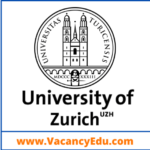Max Planck Institute, Germany invites online Application for number of Fully Funded PhD Degree at various Departments. We are providing a list of Fully Funded PhD Programs available at Max Planck Institute, Germany .
Eligible candidate may Apply as soon as possible.
(01) PhD Degree – Fully Funded
PhD position summary/title: PhD Positions (m/f/d) | Research School: Molecules of Life
IMPRS-ML brings together two renowned Max Planck Institutes, the Max Planck Institute of Biochemistry (MPIB) and the Max Planck Institute for Biological Intelligence (MPI-BI), as well as two leading partner universities, the Ludwig-Maximilians-Universität München (LMU) and the Technische Universität München (TUM), to deliver first-class training for the world’s most promising young scientists. Our graduate school comprises more than 250 PhD students from 40+ countries as well as 38 distinguished and internationally recognised faculty members.
Deadline : 07 October 2025
(02) PhD Degree – Fully Funded
PhD position summary/title: PhD Student or Postdoc Position (f/m/d) | Computational Biomolecular Dynamics
Successful candidates have strong skills in computational molecular (bio)physics, structural biology and scientific computing, as well as a keen interest in interdisciplinary research and collaboration with experimental groups.
PhD Students hold (or expect to complete soon) a Masters or equivalent degree in any of these or a related field. Correspondingly, Postdocs hold a PhD or equivalent degree in the above mentioned or related fields.
Deadline : Open until filled
View All Fully Funded PhD Positions Click Here
(03) PhD Degree – Fully Funded
PhD position summary/title: PhD Student (f/m/d) | Electrochemical Reduction of Oxidized Nitrogen Species
The research topic contributes to the concept of a sustainable circular economy. Human activities have disturbed the global nitrogen (N-) cycle, due to a mismatch between the atmospheric N2 fixation and denitrification rates. Fixed-N-species accumulate by the energy-intensive Haber-Bosch process, industrial and transportation combustion processes, over-cultivation of crops that promote the biological N2 fixation, and over-fertilization practices. However, reactive N-forms are essential to sustain the global food supply of a steadily growing human population. It is thus imperative to deploy efficient recycling concepts of already fixed-N compounds, supplementing with N2-fixation strategies to compensate for conversions back to unreactive N2, thus balancing the N-cycle.
Ammonia (NH3), a nitrogen-hydrogen compound that is widely used in agriculture and industry, is not only a compelling candidate for storing and distributing H2, but also a potential fuel and a valuable chemical. On the aforementioned ground, recycling oxidized N-forms back to NH3 with the use of green electrons and water can contribute to fixed-N recycling concepts and inhibit the accumulation of reactive-N-species in the ecosystem. Meanwhile, the increasing availability of renewable electricity renders its direct usage via electrocatalytic processes attractive in the context of power-to-X circular scenarios.
Deadline : Open until filled
(04) PhD Degree – Fully Funded
PhD position summary/title: Fully funded PhD Positions (Doctoral Researcher m/f/d) | Condensed Matter Science
Are you interested in becoming a doctoral researcher in the field of condensed matter science? The International Max Planck Research School for Condensed Matter Science (IMPRS-CMS) in Stuttgart, Germany, currently has an open call for multiple fully funded doctoral researcher (m/f/d) positions.
Deadline : 30th September 2025
(05) PhD Degree – Fully Funded
PhD position summary/title: 12 PhD Positions | Fully Funded
The Cologne Graduate School of Ageing Research (CGA) in Germany is a joint venture of the University of Cologne Excellence Cluster on Stress Responses in Aging-Associated Diseases (CECAD), the University Hospital and the Max Planck Institutes for Biology of Ageing and for Metabolism Research. We offer up to 12 FULLY FUNDED PHD POSITIONS to highly motivated and talented researchers. The structured PhD training programme within a cutting-edge research environment will start on an individual basis between July 1 and October 1, 2026.
Deadline : NOVEMBER 3, 2025
Polite Follow-Up Email to Professor : When and How You should Write
Click here to know “How to write a Postdoc Job Application or Email”
(06) PhD Degree – Fully Funded
PhD position summary/title: Doctoral position on Primate Social Behavior (m/f/d)
The Gorilla Research Group at the Department of Primate Behavior and Evolution is looking for a talented and motivated young scientist passionate about carrying out research towards a doctoral thesis in primate behavioral ecology.
The work will focus on understanding the causes and consequences of affiliative social behavior in the two species of gorillas under the supervision of Dr. Martha Robbins. The overarching goal of this work is to understand the factors that influence the variation in affiliative behavior in gorillas, how it relates to other behavior such as aggression and ecological conditions, and the potential consequences of affiliative behavior. The research will involve analysis of long-term behavioral datasets and likely additional data collection in the field.
Deadline : September 1, 2025.
(07) PhD Degree – Fully Funded
PhD position summary/title: Doctoral Student (m/f/d) | Brain Algorithms and Circuits
We are seeking a highly motivated doctoral student (m/f/d) with a strong interest in experimental neuroscience to investigate how circuits in the vertebrate brain give rise to computation. Applicants should hold a master’s degree (or equivalent) in neuroscience, a related STEM field, or medicine.
The ideal candidate also has:
- An excellent academic track record
- Prior research experience in an experimental setting
- A thorough understanding of systems neuroscience
- Strong analytical and critical thinking skills
- A willingness to learn new techniques, including advanced experimental methods and computer programming
- Excellent verbal and written communication skills in English
Deadline : August 31st 2025.
(08) PhD Degree – Fully Funded
PhD position summary/title: PhD Student (m/f/d) | Multi-modal Biological-Classification-of-Mental-Disorders (BeCOME) study
The main focus of the department “Genes and Environment” (lead by Prof. Dr. Dr. med. univ. Elisabeth Binder) lies on stress- and adverse life event-related psychiatric disorders. Exposure to adverse life events, including trauma and chronic stress, is the most robust risk factor for mood and anxiety disorders but also other psychiatric and medical disorders. In our research we aim to gain a better understanding of the adaptive as well as maladaptive molecular, cellular and circuit level factors influencing our response to stress. This will be important to identify pathomechanisms of stress-related psychiatric disorders. The overarching aim of our department research is to contribute to a new, biology-based taxonomy of psychiatric disease that will allow to develop treatments and preventive strategies targeted at the underlying biological trajectories.
Deadline : Open until filled
Click here to know “How to Write an Effective Cover Letter”
(09) PhD Degree – Fully Funded
PhD position summary/title: PhD or Postdoctoral position (m/f/d)
A full-time PhD or Postdoctoral position is available in a collaborative Max Planck research project within the SusMax network focused on developing interpretable machine-learning frameworks for kinetic multiphase reaction-network discovery in the catalytic conversion of renewable feedstocks. The successful candidate will integrate multiscale first-principles modeling, sparse symbolic regression, and adaptive experimental design in self-driving laboratory settings to elucidate both desired catalytic pathways and degradation mechanisms at inorganic–organic interfaces. The position is hosted at the Fritz-Haber-Institut (Berlin) in a close partnership with the MPI Magdeburg, contributing to algorithm development, computational tool implementation, and validation with experimental partners.
Deadline : August 31, 2025
(10) PhD Degree – Fully Funded
PhD position summary/title: PhD position on Exploring Supernova Remnants in eROSITA and Multiwavelength Data (m/f/d)
The PhD project is in the field of exploring stellar endpoints, e.g., supernova remnants and neutron stars. Successful candidates shall make use of various data from current radio, optical, and high-energy observatories(e.g., ASKAP, MeerKAT, XMM-Newton, Chandra, JWST, etc.), take an active part in the preparation of observing proposals for the current optical, radio, and high-energy observatories and ideally be familiar with the standard data analysis tools.
Identified radio supernova remnants (SNRs) in the Galaxy comprise an incomplete sample of the SNR population due to various selection effects. ROSAT performed the first All-Sky Survey (RASS) with an imaging X-ray telescope and thus provided another window for finding SNRs and compact objects that may reside within them. eROSITA (extended ROentgen Survey with an Imaging Telescope Array) is the core instrument of the Russian Spektrum-Roentgen-Gamma (SRG) mission, which was launched in December 2019 and observed the X-ray sky in somewhat more than four consecutive all-sky surveys. eROSITA has an XMM-Newton-type sensitivity but an unlimited field of view in its survey mode. This makes the instrument and its X-ray data unique, especially when searching for new supernova remnants and exploring extended objects with faint surface brightness.
We are looking for highly qualified and highly motivated candidates with a 5-year Master’s degree in physics or astrophysics with at least a grade of ‘good’. Experience in programming in C, C++, Python, or IDL (or any equivalent) is desirable, as well as experience in the analysis of imaging radio data.
Deadline : 14th September 2025
Connect with Us for Latest Job updates
(11) PhD Degree – Fully Funded
PhD position summary/title: Doctoral / Post-Doctoral researchers (f/m/d) | Unravelling the mysteries of Vibrational Strong Coupling
The UnMySt project (“Unravelling the Mysteries of Vibrational Strong Coupling”), funded by a prestigious Synergy Grant from the European Research Council (ERC), investigates how quantum electrodynamics can be harnessed to control chemical and physical processes at the molecular level. This cutting-edge research belongs to the emerging field of polaritonic chemistry. Despite significant experimental progress in recent years, polaritonic chemistry continues to present major theoretical challenges that limit its translation to industrial applications. UnMySt brings together leading experimental and theoretical groups from four countries and aims to develop a comprehensive theoretical and experimental framework for cavity-controlled chemistry, with focus on Vibrational Strong Coupling (VSC) at both molecular and supramolecular scales. Through tightly integrated theoretical and experimental efforts, the project will uncover new physical mechanisms and lay the foundational principles—both qualitative and quantitative—for the rational design of strongly coupled molecular systems. Ultimately, UnMySt seeks to unlock the full potential of polaritonic chemistry as a transformative tool for synthesis and materials design.
Deadline : August 31st 2025
Polite Follow-Up Email to Professor : When and How You should Write
(12) PhD Degree – Fully Funded
PhD position summary/title: PhD Student or Postdoc (f/m/d) | Theory and algorithms for structure determination from single molecule x-ray scattering images
Single molecule X-ray scattering experiments with free electron lasers offer a new route to the structure determination of biomolecules. Due to the super-low signal-to-noise-ratio, computing the structure from such data is challenging, and new theoretical methods and algorithms are required. The research project aims at deriving priors for Bayesian methods from atomistic simulations and machine learning. It also offers the opportunity to work with data from the European XFEL facility at DESY.
Deadline : Open until filled
(13) PhD Degree – Fully Funded
PhD position summary/title: PhD Student or Postdoc (f/m/d) | Theory and Methods for Non-equilibrium Theory and Atomistic Simulations of Complex Biomolecules
The Department of Theoretical and Computational Biophysics headed by (Prof. Dr. Helmut Grubmüller) is inviting applications for a PhD Student or Postdoc (f/m/d) – Theory and Methods for Non-equilibrium Theory and Atomistic Simulations of Complex Biomolecules.
Possible projects are variational free energy methods, thermodynamics of solvation shells, constant-pH simulation methods, Markovian thermodynamics, as well as functional mechanisms of the ribosome, fatty acid synthase, CRISPR/Cas, or intrinsically disordered proteins.
Deadline : Open until filled
About The Max Planck Institute, Germany –Official Website
The Max Planck Society for the Advancement of Science (German: Max-Planck-Gesellschaft zur Förderung der Wissenschaften e. V.; abbreviated MPG) is a formally independent non-governmental and non-profit association of German research institutes. Founded in 1911 as the Kaiser Wilhelm Society, it was renamed to the Max Planck Society in 1948 in honor of its former president, theoretical physicist Max Planck. The society is funded by the federal and state governments of Germany.
According to its primary goal, the Max Planck Society supports fundamental research in the natural, life and social sciences, the arts and humanities in its 84 (as of January 2024) institutes and research facilities. As of 31 December 2023, the society has a total staff of 24,655 permanent employees, including 6,688 contractually employed scientists, 3,444 doctoral candidates, and 3,203 guest scientists. 44.9% of all employees are female and 57.2% of the scientists are foreign nationals. The society’s budget for 2023 was about €2.1 billion.
The Max Planck Society has a world-leading reputation as a science and technology research organization, with 39 Nobel Prizes awarded to their scientists, and is widely regarded as one of the foremost basic research organizations in the world. In 2020, the Nature Index placed the Max Planck Institutes third worldwide in terms of research published in Nature journals (after the Chinese Academy of Sciences and Harvard University). In terms of total research volume (unweighted by citations or impact), the Max Planck Society is only outranked by the Chinese Academy of Sciences, the Russian Academy of Sciences and Harvard University in the Times Higher Education institutional rankings. The Thomson Reuters-Science Watch website placed the Max Planck Society as the second leading research organization worldwide following Harvard University in terms of the impact of the produced research over science fields.
Disclaimer: We try to ensure that the information we post on VacancyEdu.com is accurate. However, despite our best efforts, some of the content may contain errors. You can trust us, but please conduct your own checks too.
Related Posts
- 12 PhD Positions-Fully Funded at Linkoping University, Sweden

- 11 PhD Positions-Fully Funded at Maastricht University, Netherlands

- 07 PhD Positions-Fully Funded at University of Basel, Switzerland

- 11 PhD Positions-Fully Funded at University of Southern Denmark, Denmark

- 18 PhD Positions-Fully Funded at Inria, France

- 10 PhD Positions-Fully Funded at University of Stavanger, Norway

- PhD Positions (16)-Fully Funded at University of Zurich, Switzerland

- PhD Positions (08)-Fully Funded at University of Bergen, Bergen, Norway

- PhD Positions (05)-Fully Funded at Wageningen University & Research, Netherlands











